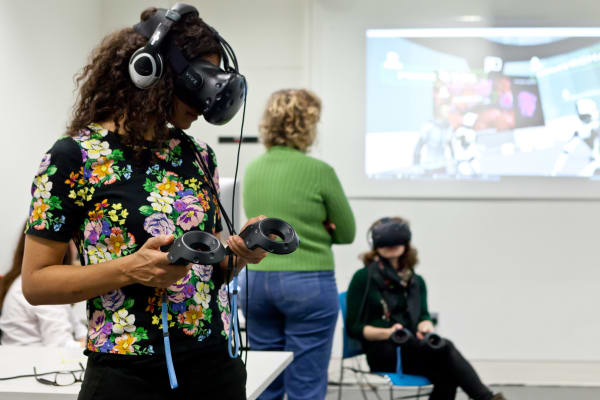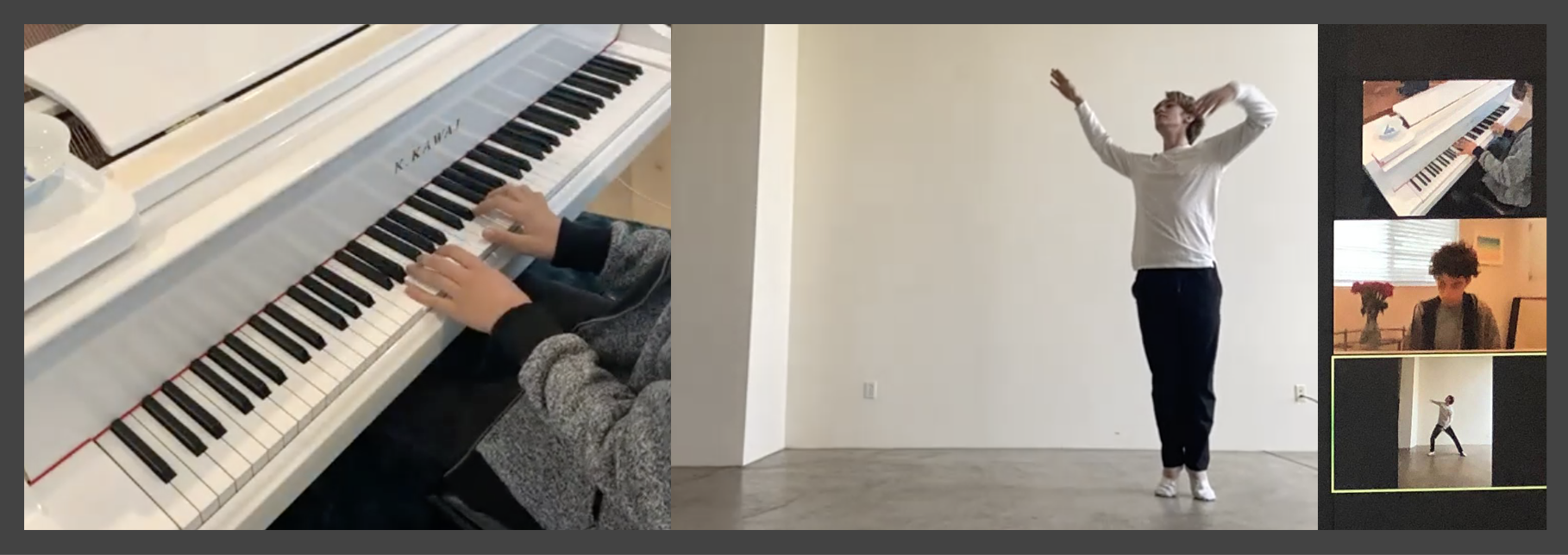In their final year, students from MA Arts and Cultural Enterprise collaborate on an online intervention. This year the projects ran from “audio remedies” for the global pandemic to exploring the impact of live-streaming improvised performance. Here, we catch up with the graduating students to learn more.
Found in Translation
Peter Cronin: We gathered around what we’re interested in, which for me is storytelling. Our group quickly came up with a story-translating podcast.
Jo Coulson: Our class is so fantastically international. The project was inspired by that group of people from across the world.
Lost in Translation is based on a children’s short story about a tortoise which I wrote. Each episode, we share a chapter in English and then in another language, for example the first episode is in Spanish. Then, another person – who hasn’t heard the story – translates it back in English. It goes through this chain of translation and picks up subtle differences. We then have a discussion of those differences and what they reveal. Many of our classmates worked with us on the translations so the project celebrates difference and connection in terms of our cohort but also, hopefully, in a wider sense.
How did lockdown impact your project?
PC: This project was always intended to be online. On this MA – other than our intensive weekends – our work is all online so this was a continuation.
JC: Yes, online is the way that we all work. As a class, we don’t meet up physically often, but when we do it’s really great. We’ve all missed that this year. But I don’t think the project was changed by lockdown.
What does the future bring?
PC: That last two years has been a fun whirlwind. I work at the Imperial War Museum in visitor experience, so now I can do the actual work with the mental space to achieve it. I also recently became a trustee of Harlow Art Trust, which is an urban sculpture park. It’s a physical experience with small digital presence so I’m interested in the translation between those two things. How can you translate physical sculpture into something digital and accessible?
JC: I work in student communication and events at University for the Creative Arts. I’m also a musician and do a lot of zine work. This year I’ve got plans for festivals, like the Estuary Festival I’m working on a zine for different places in Chatham while for Chelsea Fringe Festival I’m looking at pop songs to do with flowers and plants.
Lost in Translation was created by Vicky Timms, Shan Huang, Yuri Mizoe, Cristina Oses, Paula Palomino, Mariangela Korma, Peter Kronin and Jo Coulson.
The Remedies
Your project was inspired by lockdown?
Kata Ovari: We began by identifying the experiences all five of us shared during this – even under usual circumstances – rather stressful and high-pressure period but now with the added precarity of a global pandemic. We shared what we were missing during lockdown. Lucy, a dancer, missed using her body. I missed going out to restaurants. Another missed live music and music venues. We thought about recreating those experiences as “audio remedies”, combining the original concept of a guided walk with immersive audio of what we were craving.
We recorded our own remedies. I wrote the script and found myself focused more on the social experience and atmosphere of eating out rather than the food itself, which was unexpected.
They are simple to produce and could be used by family and close friends to connect with each other in a socially distanced and safe manner. You could share your own remedy with someone close or you could create one as a gift for somebody you care about.
What does the future bring?
For my individual practice, I’m looking at alternative financial tools and how they could support more sustainable commercial development in the creative industries. I’m currently on the Women in Social Tech accelerator so that will keep me busy.”
Audio Remedies was created by Charlotte Grotell, Christina McMahon, Lucy Suggate, Caggy Kerlogue and Kata Ovari.
Sparking Creativity
Yolanda Pulido Igancio: A member of our group is an experienced dance professional and she suggested we explore dance performance in the digital realm. Asking, for both the performer and the audience, how time and space are contracted through the digital screen. What are the limitations and the possibilities? How this form of provision can impact audience engagement? Sparking Creativity, was an improvised performance by dancer Julian Mackay and composer Samuel L. Siskind, entirely unrehearsed but broadcasted live. Could you “spark creativity” in a digital environment?

Sparking Creativity explores the new normal. You don’t need to be in the same room to share a performance but, how does that change the experience? The focus was on improvisation, sharing an unrehearsed piece. Whilst we experienced technical issues during the process, broader questions arouse and we found that sharing the piece through the digital platform meant it didn’t look improvised to the audience. There was also a missing connection between the artists and the audience, so what does that mean for online performance?
The piece was inspired by being separated and isolated. Many of us were in lockdown at the time but a member of our group is based in the US so we were always going to be remote working no matter what was happening with the pandemic.
What does the future bring?
After graduation? It has been a tough year working full time whilst completing my Masters so I haven’t thought about what the future holds. I’ll take some time to think about what’s next. My background is theatre but I’ve been working in education for the last few years so I’m looking at start-ups that combines my experience within these fields. At the moment, I would like to take some time off to rethink my next steps.”
Sparking Creativity was created by Rachel Duffy, Maria Sascha Khan and Yolanda Pulido Ignacio.
More:
-

MA Arts and Cultural Enterprise Virtual Reality Symposium. Photographer Glenn Michael Harper

